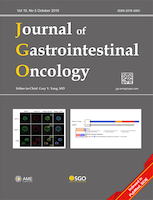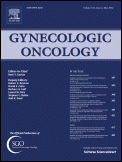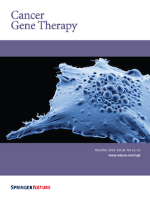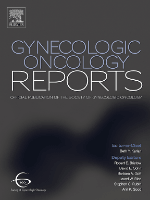
Journal of Gastrointestinal Oncology
Scope & Guideline
Elevating standards in gastrointestinal cancer research.
Introduction
Aims and Scopes
- Molecular and Genetic Research in Gastrointestinal Cancers:
The journal emphasizes the exploration of molecular and genetic factors influencing the development and progression of gastrointestinal cancers, including studies on gene expression, mutations, and biomarkers. - Clinical Trials and Therapeutic Innovations:
It publishes findings from clinical trials assessing new treatment modalities and therapeutic combinations, including immunotherapy, targeted therapy, and chemotherapy regimens. - Prognostic Modeling and Risk Assessment:
Research focused on developing prognostic models and nomograms to predict outcomes in patients with various gastrointestinal malignancies is a consistent theme, aiding clinical decision-making. - Surgical Techniques and Outcomes:
The journal covers studies on surgical interventions, including minimally invasive techniques and their outcomes, as well as the role of surgery in the management of advanced cancers. - Interdisciplinary Approaches to Cancer Treatment:
The integration of various treatment modalities, such as combining chemotherapy with radiotherapy or surgical interventions, is a significant focus, aiming to improve patient outcomes. - Impact of Microbiome and Nutrition on Cancer:
Research exploring the relationship between gut microbiota, nutrition, and cancer outcomes is increasingly prevalent, highlighting the importance of holistic approaches in cancer care.
Trending and Emerging
- Immunotherapy and Biomarkers:
There is a rising interest in immunotherapy, particularly in identifying biomarkers that predict responses to immunotherapy, indicating a shift towards personalized cancer treatment strategies. - Liquid Biopsy and Minimal Residual Disease Detection:
Research on liquid biopsy techniques for early detection of recurrence and monitoring of minimal residual disease is gaining momentum, reflecting advancements in non-invasive diagnostic methods. - Microbiome Research and Its Impact on Cancer Therapy:
Studies investigating the role of gut microbiota in influencing treatment outcomes and responses to therapies are increasingly prominent, highlighting the importance of microbiome research in oncology. - Combination Therapies for Enhanced Efficacy:
The exploration of combination therapies, integrating traditional chemotherapy with targeted therapies and immunotherapy, is trending, as researchers seek to enhance treatment efficacy and overcome resistance. - Patient-Centered Outcomes and Quality of Life:
There is a growing emphasis on research that evaluates patient-centered outcomes, including quality of life and psychosocial factors, in the context of gastrointestinal cancer treatment. - Artificial Intelligence and Machine Learning Applications:
The application of artificial intelligence and machine learning in predicting treatment outcomes and personalizing therapy for gastrointestinal cancers is an emerging theme, reflecting technological advancements in healthcare.
Declining or Waning
- Traditional Chemotherapy Efficacy Studies:
There is a noticeable reduction in studies solely focused on traditional chemotherapy efficacy without integration of novel agents or immunotherapy, as the field shifts towards personalized medicine. - Epidemiological Studies on Colorectal Cancer:
Research articles solely dedicated to the epidemiology of colorectal cancer have become less frequent, possibly due to a greater emphasis on molecular and genetic factors influencing treatment. - Single-Institution Case Reports:
The frequency of single-institution case reports has declined as the journal increasingly prioritizes larger, multicenter studies and clinical trials that provide broader implications for practice. - Basic Science Research without Clinical Application:
There is a decreasing trend in publishing basic science research that lacks direct clinical relevance, as the journal focuses on studies that translate into clinical practice. - Conventional Imaging Techniques in Diagnosis:
Research centered on conventional imaging techniques for diagnosing gastrointestinal cancers is waning, as advancements in molecular imaging and liquid biopsy technologies gain traction.
Similar Journals

South Asian Journal of Cancer
Empowering voices in oncology and cancer care.South Asian Journal of Cancer, published by GEORG THIEME VERLAG KG, is a pivotal platform for research in the fields of oncology and cancer research. Established in 2012 and operating under an Open Access model, this journal aims to disseminate high-quality, peer-reviewed articles that address crucial developments in cancer treatment, prevention, and research, particularly within the South Asian context. Despite its young history, the journal has been positioned within the Q4 quartile for both Cancer Research and Oncology, and while current Scopus rankings indicate it resides in the lower percentiles, its commitment to amplifying regional voices and research is invaluable. With its headquarters in Stuttgart, Germany, and a global readership, South Asian Journal of Cancer is dedicated to enhancing collaboration among researchers, healthcare professionals, and students, fostering a space for innovative ideas and advancements in cancer care as we progress through to 2024.

World Journal of Oncology
Advancing cancer research, one study at a time.The World Journal of Oncology, published by ELMER PRESS INC, is a vibrant platform for disseminating groundbreaking research and advancements in the field of oncology. With its ISSN 1920-4531 and E-ISSN 1920-454X, this journal is dedicated to publishing high-quality studies that enhance our understanding of cancer and its treatment. The journal is recognized for its significant contributions, evidenced by its Q2 classification in both Cancer Research and Oncology categories in 2023, and accolades such as a Scopus rank of #126/404 in Medicine _ Oncology. Catering to the needs of researchers, professionals, and students, the World Journal of Oncology offers an essential resource for the latest scientific insights and clinical practices, ensuring the global oncology community remains informed and engaged. The journal operates under a selective publication model, maintaining rigor in peer review while facilitating knowledge sharing across converged years from 2014 to 2016 and 2020 to 2024, further establishing its importance in the ongoing fight against cancer.

International Journal of Gastrointestinal Intervention
Unlocking Innovations in Gastroenterology and BeyondInternational Journal of Gastrointestinal Intervention is a distinguished open-access journal published by the SOC GASTROINTESTINAL INTERVENTION that has been committed to disseminating critical research since its inception in 2012. Based in the Netherlands, this journal focuses on the dynamic fields of gastroenterology, hepatology, oncology, and radiology, offering a platform for innovative studies and clinical interventions that can significantly impact patient care and medical practice. With its incorporation into Scopus and ranked within the lower quartiles in various categories as of 2023, the journal acknowledges the evolving landscape of medical research and seeks to continually elevate its contributions to knowledge in these specialized areas. By embracing open access since its founding, the journal ensures that cutting-edge research findings are accessible to a global audience, fostering collaboration and knowledge sharing among researchers, professionals, and students. The journal aims to be a premier source of information and a catalyst for advancements in gastrointestinal interventions, making it an essential resource for those dedicated to improving health outcomes in these critical medical fields.

World Journal of Gastrointestinal Oncology
Fostering innovation in the fight against gastrointestinal disorders and cancer.World Journal of Gastrointestinal Oncology, published by BAISHIDENG PUBLISHING GROUP INC, stands as a pivotal resource in the evolving fields of gastroenterology and oncology, particularly focused on the intricate relationship between gastrointestinal disorders and cancer. Established in 2014, the journal continues to publish influential research, boasting a commendable Q2 ranking in both the gastroenterology and oncology categories for 2023, which underscores its importance in these critical medical domains. With a diverse range of topics and studies, it serves as an essential platform for researchers, healthcare professionals, and students aiming to stay informed about the latest advancements and innovations in gastrointestinal oncology. Though currently not classified as open access, the journal's rigorous peer-review process ensures the dissemination of high-quality research that significantly contributes to clinical practice and patient care. Its positioning in the Scopus rankings also highlights its competitive standing within the scientific community, fostering discussions that are crucial for advancing both fields. Explore the latest insights and findings to enhance your understanding and contribute to the ongoing dialogue in gastrointestinal health and oncology.

Gynecologic Oncology
Elevating Standards in Women's Health ResearchGynecologic Oncology, an esteemed journal published by Academic Press Inc Elsevier Science, stands at the forefront of research in the domains of Obstetrics and Gynecology and Oncology. With an exceptional track record dating from 1972 to 2024, this journal has established itself as a vital resource for scholars and practitioners alike, boasting a remarkable Q1 ranking in both fields as of 2023. Gynecologic Oncology not only ranks #13 out of 209 in Obstetrics and Gynecology and #72 out of 404 in Oncology but also operates within the top percentiles of academic influence, with a 94th percentile in Obstetrics and Gynecology and an 82nd percentile in Oncology on Scopus. Although the journal does not currently offer open access, it remains crucial for disseminating original research, reviews, and advances in the management and treatment of gynecological cancers. Researchers and health professionals will find this journal indispensable for staying informed on the latest advancements and breakthroughs in this vital area of medicine, fostering a deeper understanding and potentially transforming patient care practices.

Translational Oncology
Innovating Tomorrow's Cancer Therapies TodayTranslational Oncology is a premier open access journal published by Elsevier Science Inc, dedicated to the rapidly evolving field of cancer research and oncology. Since its inception in 2008, the journal has been a vital platform for the dissemination of innovative research and findings that bridge the gap between laboratory discoveries and clinical applications. With an impressive impact factor and ranked Q2 in Cancer Research and Q1 in Oncology, it occupies a prominent position in the academic landscape, helping to shape the future of cancer therapeutics and patient care. The journal offers valuable insights across a diverse array of topics, including molecular biology, genetic factors in cancer, and innovative treatment strategies, ensuring relevance and engagement for its readership. As it converges toward 2024, Translational Oncology continues to attract a global audience of researchers, healthcare professionals, and students committed to advancing our understanding of cancer and enhancing clinical outcomes.

CANCER GENE THERAPY
Innovating Genetic Solutions for OncologyCancer Gene Therapy, published by SpringerNature, stands at the forefront of research in the fields of cancer research, molecular biology, and molecular medicine. With a robust impact factor reflecting its significant influence—ranking in the Q2 category for cancer research and Q1 for both molecular biology and molecular medicine—it serves as an essential resource for scholars and practitioners alike. Since its inception in 1994, the journal has dedicated itself to advancing the understanding and therapeutic application of genetic innovations in oncology. Notably, it holds distinguished Scopus ranks, placing it among the top tier journals in its categories, underscoring its importance to the scientific community. While open access options are not available, the compelling research published here offers invaluable insights into the latest advancements and strategies in cancer therapy. Engaging with *Cancer Gene Therapy* not only keeps professionals informed but also inspires future innovations in the quest for effective cancer treatments.

Gynecologic Oncology Reports
Championing excellence in women's health research.Gynecologic Oncology Reports is a pivotal interdisciplinary journal published by Elsevier Science Inc. that has been dedicated to advancing the understanding of women's health since its inception in 2014. This Open Access journal, available to a global audience, facilitates the dissemination of high-quality research in the fields of gynecology and oncology, allowing for the free exchange of knowledge and fostering collaboration among researchers, clinicians, and students. With an impact factor reflective of its commitment to clinical relevance, Gynecologic Oncology Reports holds a Q3 ranking in both obstetrics and gynecology as well as oncology categories, contributing to its visibility and the prestige of published work. Situated in the Netherlands and operating within an open-access framework, it ensures that critical findings and advancements reach a broad readership. The journal serves as a vital resource for those aiming to stay at the forefront of gynecologic oncology, promoting improved patient outcomes through cutting-edge research. As it converges towards its 10th anniversary in 2024, Gynecologic Oncology Reports continues to be an essential platform for scholarly communication in this important field.

Journal of Gastrointestinal Cancer
Advancing knowledge in the battle against gastrointestinal cancer.Journal of Gastrointestinal Cancer, published by SPRINGER, stands as a crucial resource in the fields of Gastroenterology and Oncology. With an ISSN of 1941-6628 and E-ISSN of 1941-6636, this journal has been committed to advancing the understanding and treatment of gastrointestinal cancers since its inception in 2007 and is poised to continue until 2024. The journal is recognized in the Q3 quartiles for both Gastroenterology and Oncology as of 2023, reflecting its relevance and contribution to these vital areas of medical research. Despite not being an open-access journal, it offers printed and online subscription options for access, ensuring that valuable research reaches the hands of practitioners, researchers, and students alike. With a focus on disseminating original research, reviews, and case studies, the Journal of Gastrointestinal Cancer plays a pivotal role in fostering ongoing education and discovery in the fight against cancer, promoting better patient outcomes worldwide. The journal is also indexed in Scopus, with notable rankings in the 50th and 45th percentiles for Gastroenterology and Oncology, respectively, further underscoring its scientific merit and credibility in the academic community.

Oncologie
Transforming cancer treatment through rigorous research.Oncologie is a distinguished academic journal published by WALTER DE GRUYTER GMBH, focusing on the dynamic and vital field of oncology. Established in 1999 and continuously published until 2024, this journal provides a platform for high-quality research and advancements in cancer treatment, prevention, and diagnosis. With an ISSN of 1292-3818 and an E-ISSN of 1765-2839, it is indexed in various databases, contributing to its growing visibility. Although categorized in the Q3 quartile for oncology research as of 2023, Oncologie offers essential insights and fosters scholarly dialogue among researchers, professionals, and students interested in oncology. Its unique contributions aim to bridge the gap between theoretical frameworks and clinical applications, making it a valuable resource for those seeking to advance their knowledge and expertise in cancer research.